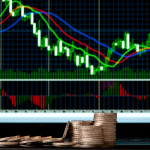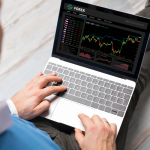Understanding FX Trading Accounts: A Beginner’s Guide
Are you feeling a little overwhelmed as a novice in the world of foreign exchange (FX) trading? Do not be alarmed! We’ll cover all you need to know about FX trading accounts in this in-depth guide, from the fundamentals to more complex ideas. Regardless of your level of trading experience, this guide will give you insightful information to get you started in the fascinating world of foreign exchange trading. After reading this, you should have a thorough understanding of how FX trading accounts operate. Also, you will know the significant variables to consider when selecting the best FX trading accounts for your trading objectives.
FX Trading: What Is It?
Trading in currencies on the international market is referred to as foreign exchange (FX) trading or forex trading. Every day, trillions of dollars are exchanged on one of the biggest and most liquid financial markets in the world. The ability to trade and profit from currency price swings is provided by foreign exchange trading to individuals and institutions.
The Value of Foreign Exchange Trading Accounts
Understanding the function of FX trading accounts is crucial before beginning any kind of trading. These accounts act as a trader’s entry point into the forex market, facilitating trade execution and effective investment management. FX trading accounts come in several forms. Each is designed to satisfy the unique requirements and tastes of traders. Let’s discuss a few of them:
Handled Accounts:
Professional money managers who trade on behalf of the account holder oversee managed FX trading accounts. Although these accounts allow you to trade hands-free, they usually have larger minimum deposits and often come with administration fees.
Small-scale accounts:
Micro FX trading accounts are ideal for traders with extremely limited capital or those who desire to trade with less risk because they are comparable to mini accounts but provide even smaller lot sizes.
Micro Accounts:
Mini FX trading accounts are intended for people who wish to experiment before committing to a normal account or for traders with minimal cash. They are perfect for beginners because they enable traders to trade smaller lot sizes.
Specific Accounting:
The most popular type of FX trading accounts are standard ones, which are appropriate for novice to intermediate traders. They usually have a minimum initial investment requirement and provide access to a large number of trading tools and currency pairs.
Selecting an Appropriate FX Trading Account
There are various things to take into consideration when choosing an FX trading account, such as:
- Account Type: Choose the account type that most closely matches your trading preferences, level of risk tolerance, and financial objectives.
- Broker Reputation: Do your homework and select a trustworthy Forex broker that has a solid track record of dependability, security, and top-notch customer support.
- Trading Platform: Check if the broker’s trading platforms are easy to use, packed with features, and suitable for the devices you own.
- Charges and Expenses: To evaluate an account’s manageability and value for money, consider any spreads, commissions, overnight fees, and other related costs.
To Sum Up
Facilitating trading activity in the forex market is mostly dependent on FX trading accounts. You may start your FX trading journey with confidence and increase your chances of success by associating yourself with the many account types that are available and choosing the best one for your requirements. To remain ahead of the curve in this dynamic and quick-paced economy, constantly remember to do extensive research, manage risks responsibly, and never stop learning.





